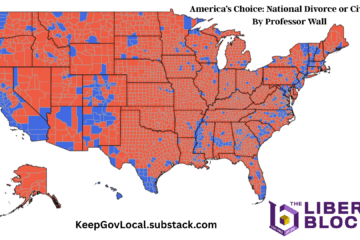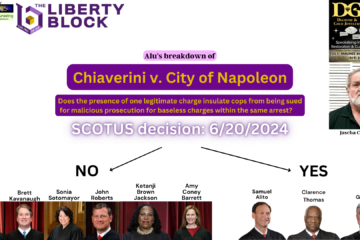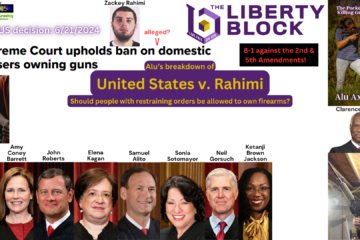On Saturday evening, The Union Leader reported that the New Hampshire State government has implemented a ground-breaking new policy which could alter the power of government and the right to privacy forever. The new policy, approved by Attorney General Gordon MacDonald and ultimately representative of Governor Sununu, informs emergency workers of all persons who test positive for the COVID-19 virus. Does this policy violate HIPAA? Is it an appropriate policy?
The state of New Hampshire
As of this writing, New Hampshire has had a maximum of 60 deaths from the virus, nearly all of which involved elderly and sick people who may have otherwise died from the common flu or other causes over the past few months if the CCP virus didn’t exist. Unlike the virus itself, the government’s brutal shutdown of the economy has caused over 140,000 NH workers to lose their jobs and file for unemployment over the past few weeks. Make no mistake; the government’s response to the virus is already much worse than the virus itself. Firstly, it has caused upwards of 20% unemployment, which means that we are already in a recession. This leads to death from suicide, hunger, and violent crime, and horribly affects society in many other ways. Secondly, the government’s response has included shredding the constitution, taking increased powers for themselves, and diminishing individual rights on a daily basis since the virus entered New Hampshire. Keep in mind how rarely governments give back rights they’ve stolen from individuals.
The Anti-privacy policy
Flying in the face of common decency, privacy, and the New Hampshire Constitution, the new edict created by our Lords gives themselves permission to expose the names of infected patients to EMS, FD, and PD personnel throughout the state. They justify this by saying that when EMTs or police officers enter a home in which an infected person resides, they should be able to prepare themselves with appropriate PPE.
As reported by The Union Leader, “The release is permitted under a provision of the federal Health Insurance Portability and Accountability Act law (HIPAA), which allows for the release of confidential health information “for the greater benefit of protecting public health,” according to the statement from MacDonald and Shibinette.” Of course, this broad exception in the federal law could be interpreted to allow for any government official to release any protected health information any time they want, rendering the entire HIPAA entirely useless.
The politicians will surely claim that only a few dispatchers and supervisors will have access to the private health data. However, sharing protected health information with any person not involved in the actual care of the patient (doctor, nurse, paramedic, etc.) violates HIPAA and is immoral. Most dispatchers in the state will never have to be involved with a COVID patient. Hospitals do not share the name and personal information of every HIV or Tuberculosis patient with every employee in the hospital, even though they all may potentially be exposed to those infectious patients. Similarly, dispatchers should not be given this sensitive information based solely on the potential for them to be involved in one of these cases. Additionally, dispatchers are often very close to their coworkers, and will inevitably share this sensitive information with firefighters, EMTs, and police officers, causing the vulnerable patients to ultimately be exposed and embarrassed statewide.
In the 2018 election, 81% of NH voters decided to amend the state constitution to include a very strong privacy policy. This directive demonstrates to the voters just how much say they have in government decisions: roughly zero.
The politicians can do anything they want, and there is generally NOTHING that we as individuals can do to stop them. This is why so many people are constantly evolving into libertarians, and eventually into anarchists.
The state government could easily implement a policy that protects privacy while also protecting first responders and the general public. Firstly, limit the unnecessary police interactions with the public in order to limit risk of exposure. All police activity not involving true emergencies should be halted. If a person is shooting into a crowd, police should still respond. If a person is violating a zoning ordinance by building a shed, police should not respond to their home and risk exposure. Secondly, the government can simply make it a legal requirement for any COVID-19 positive (or exposed/likely infected) patient to inform first responders when calling 911 and/or when they arrive on the property. This would protect individuals from having their privacy massively violated for the sake of avoiding ‘potential’ exposure to first responders. This would also adequately protect the public and the first responders. Keep in mind that very few people want to get others sick. The average person would do everything they can to avoid spreading this virus.
Such a common-sense policy is unlikely to even be considered though. We can’t worry about common sense and individual rights when “…we are in uncharted waters”, as a Fire Chief told reporters.
Chiefs of Fire and Police Departments throughout the state have compared the mild virus to Ebola, Tuberculosis, AIDS, and Hepatitis. Of course, these comparisons are ridiculous, as COVID-19 is nowhere nearly as deadly as those diseases. And it’s obviously nowhere nearly as infectious as Ebola. If it is as infectious as some people believe, we’ve all been exposed to it already – meaning that it can’t be very deadly if we are still alive.
The excuse of tyrants is always an ‘unprecedented emergency’. Politicians so often use this as justification for diminishing our rights and expanding their own powers. History has demonstrated that governments are quick to expand their powers and almost never relinquish any power back to individuals. Humans have natural rights. No emergency could erase that fact. We must not allow politicians to trample our rights to privacy and freedom, regardless of their excuse.


